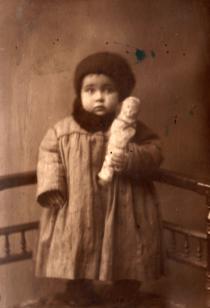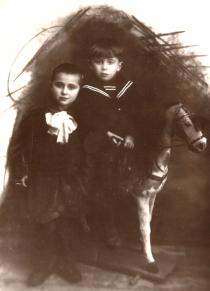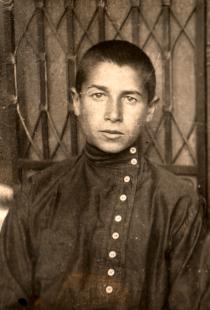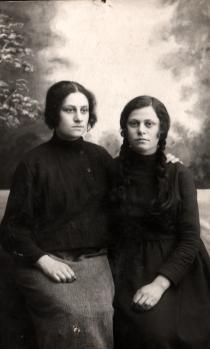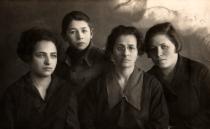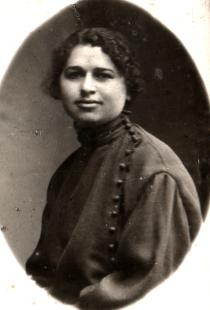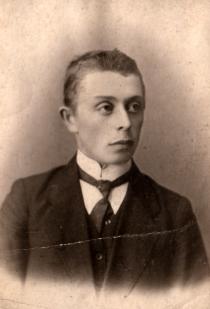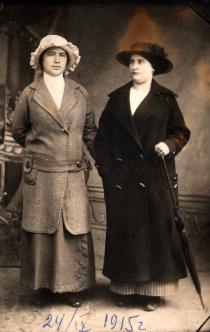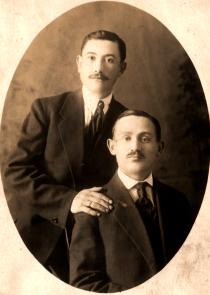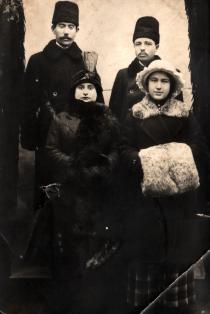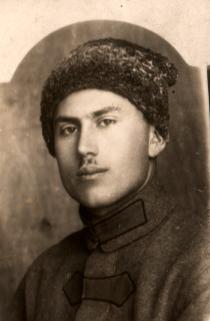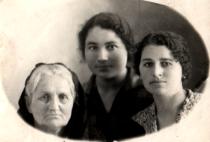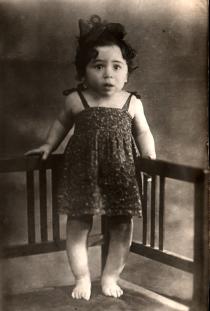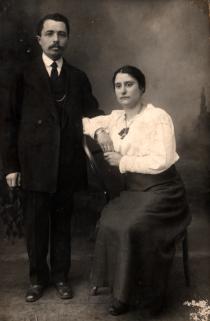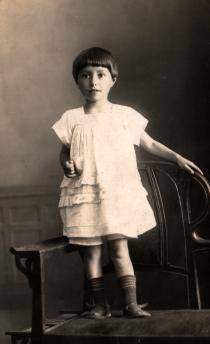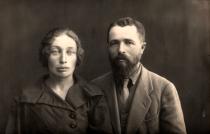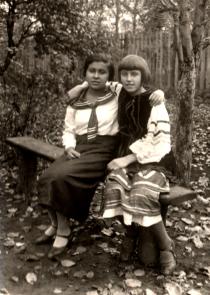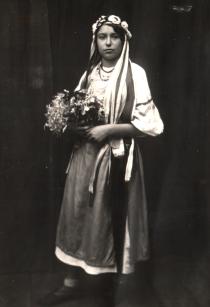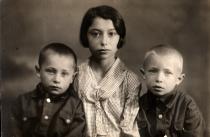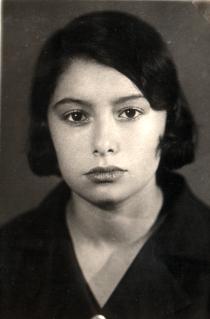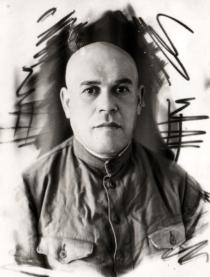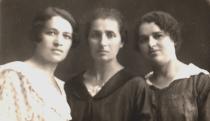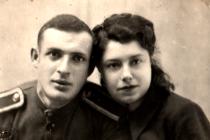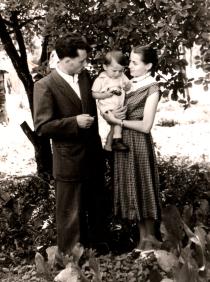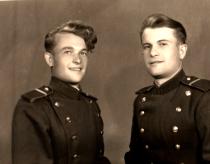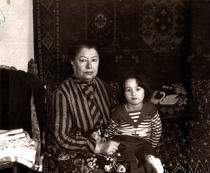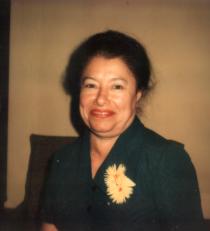This is a picture of my grandmother on my father's side, Cherna Margolina, and two of her daughters, Beila (nee Margolina) and Sima Shevtsova (nee Margolina). This photo was taken in Kiev in 1920.
My grandmother was born in Borispol village, about 30 kilometers from Kiev, in the 1860s. After she got married to my grandfather, Boruch Margolin, they moved to Borispol. He rented a mill and worked at it. My grandmother was a housewife. She was short and slim and she was very pretty when she was young. She didn't wear a wig or a shawl. She had thick curly hair. It was gray. She wore casual clothes in the fashion of that time. She liked dark skirts and white blouses with laces or embroidery. The only language my grandmother spoke was Yiddish and I never heard her say one word in Russian.
There were seven children in the family. They were all born in Borispol. I don't know their dates of birth, but I can tell who was older or younger than my father. Rosa was the oldest. Then came two daughters, Sima and Nenia. Then my father Khaskel was born and then came his brothers Peretz and Shaya. The youngest was Beila, born in 1900.
Sima married Samuel Shevtsov, a Jewish man from Kiev. They had two children: Sarra and Boris After she got married Sarra finished medical college and worked as a speech therapist in the children's hospital. Sima's family didn't observe any Jewish traditions or celebrate Jewish holidays. Sima's son died in a car accident at the age of about seven. He was hit by a car. Sima died of malaria in evacuation in the town of Nukha, Azerbaijan, in 1942. Sara and her family live in the USA. I have no information about them.
Beila got married in Kiev in 1931. I don't remember what her last name in marriage was. Her older daughter, Fania, was born in 1932 and her son, Boris, was born in 1937. Beila didn't work after she got married. I don't remember her husband. Beila wasn't religious and her family didn't celebrate Jewish holidays or observe Jewish traditions. During the war she and her children were in evacuation in Nukha with us. After the war her family returned to Kiev. In 1989 Beila emigrated to Israel with her son's family. She died there in 1995.

